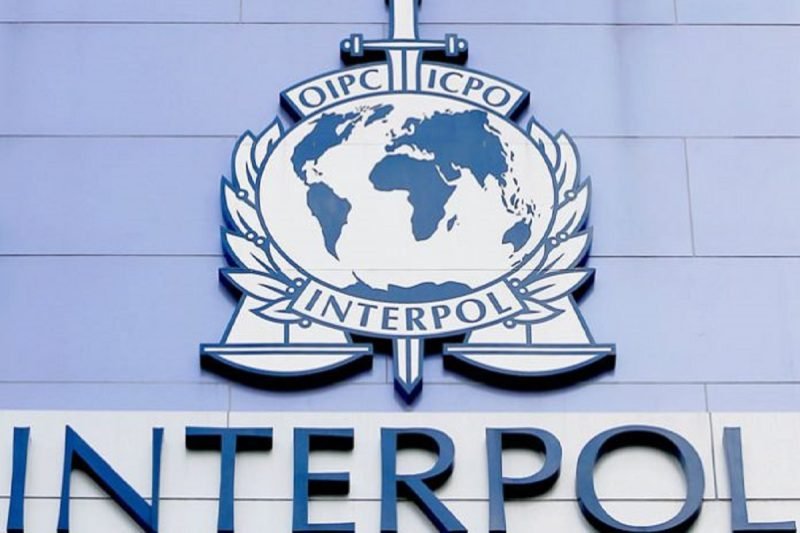EU states are in talks with the International Criminal Police Organization’s (Interpol) to help stop political abuse of the police agency, Matti Maasikas, Estonia’s Deputy Minister for EU Affairs, told MEPs in the European Parliament in Strasbourg on Wednesday.
According to a report by Euobserver, the issue has become of “great concern” to EU states, said Matti Maasikas and added that an EU-Interpol committee would “discuss possible improvements of Interpol systems” with the police body at a meeting on November 20, 2017.
Maasikas said Germany and Sweden had asked Estonia, which currently holds the EU term presidency, to tackle the subject. He said “it is important that a proper review takes place of the Red Notice before issuance” and that an “effective redress mechanism exists” for people who end up as Interpol targets.
During a plenary sitting on Thursday, the members of the European Parliament, have also given the message that Turkey is “abusing” the Interpol Red Notices. “The Red Notice is never the sole basis for a return decision … The correct judicial process is required,” Maasikas said, underlining that the number of red bulletins had “increased significantly” in the recent period.
Estonia’s Maasikas has also said that it would not be practical to hold a full judicial review of each Red Notice case before an alert was issued. He added that EU states had not made up their mind how the police body should safeguard its work. “We are in a situation where [EU] member states are members of an international organisation where there is no agreed common EU line or policy,” he said.
Vera Jourova, a European Commission member on justice, consumer and gender equality, said it is “worrying” when Interpol Red Notices are “used by some countries for political purposes.” Jourova added that “It is up to Interpol to put in place procedures to prevent abuse.” Joureva said the European Commission had no mandate to influence its work, but she said Interpol was putting in place new rules to stop people who had obtained asylum overseas from being targeted.
Many members of the European Parliament who took the floor during the session said countries such as Russia, China, Iran and Turkey are using Interpol Red Notices to silence political dissident.
Interpol is an intergovernmental body based in Lyon, France. It has no outside oversight, but its 1957 Charter says Red Notices should not be issued for political, military, religious, or racist motives.
“We need to speak out when there are instances of repression and to make sure there are safeguards,” Claude Moraes, a centre-left British MEP, said. He said there should be “necessity and proportionality checks carried out on Red Notices from some countries” to stop “obvious abuses of human rights.”
The European Parliament’s decision to hold the plenary session came after Turkey issued a Red Notice for Turkish dissent journalist Can Dündar, Hamza Yalçın, a Turkish-Swedish reporter and writer, as well as German-Turkish writer Doğan Akhanlı, who were subsequently detained temporarily in Spain. Interpol states are not obliged to honour red alerts, but Spain arrested Akhanlı and Yalçın while they were visiting the country, where they are now fighting extradition to Turkey.
The plenary session also referred to a resolution taken by the Parliamentary Assembly of the Council of Europe earlier this year, which called on Interpol “to continue improving its Red Notice procedure in order to prevent and redress abuses even more effectively.”
The resolution in April had noted that Interpol’s Red Notice system has been “abused by some countries to repress freedom of expression or to persecute members of the political opposition beyond their borders.”
A Red Notice is a request to locate and provisionally arrest an individual pending extradition, but Interpol cannot compel any member country to arrest an individual that is the subject of the notice. Each member country decides for itself what legal value to give a Red Notice within their borders.
The Turkish government’s blatant abuse of the International Criminal Police Organization (Interpol) to persecute, harass and intimidate critics and opponents is much worse than one can imagine, a research by Stockholm Center for Freedom (SCF), an advocacy group that tracks rights violations in Turkey, has revealed.
“The dubious and false charges filed by Turkey through Interpol to hunt down legitimate critics of Turkey’s autocratic President Recep Tayyip Erdoğan have in some cases succeeded in extraditing people from abroad, subjecting returnees to torture and ill treatment in notorious Turkish prisons. In other cases, people were stranded in third countries while travelling and were forced to fight the forcible return as they remained in detention facilities,” said the SCF report.
Leading NGOs, such as Fair Trials in the UK, the New York-based Human Rights Watch, and Reporters Without Borders in Paris, have also urged the Interpol to weed out abuses.
















